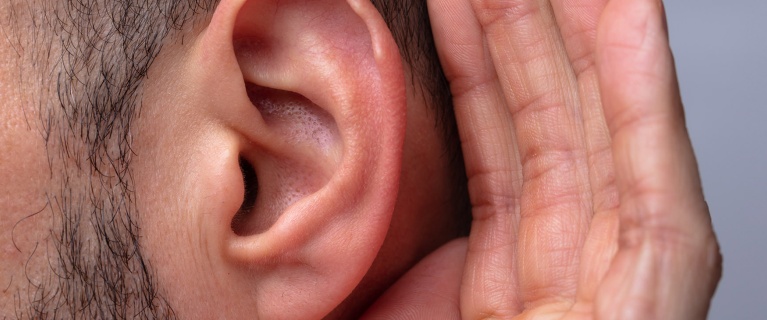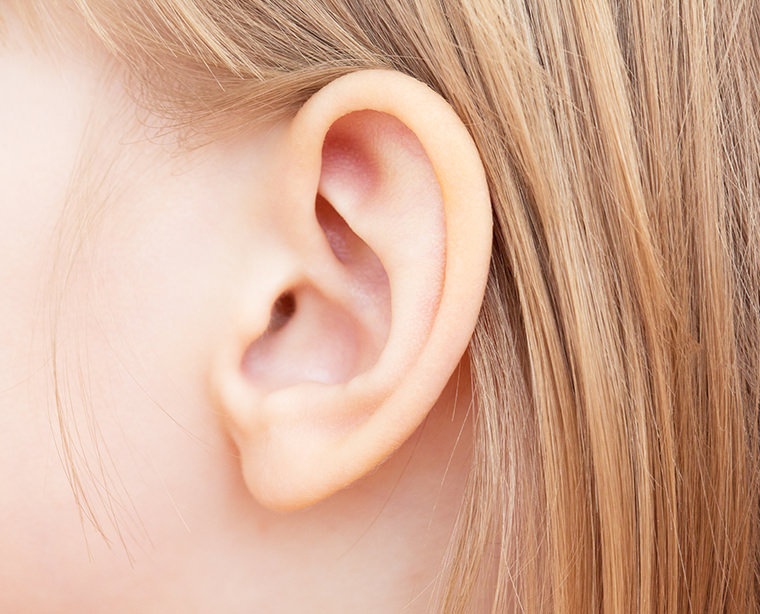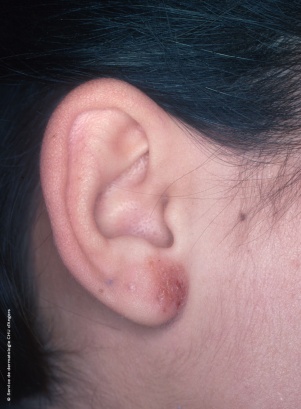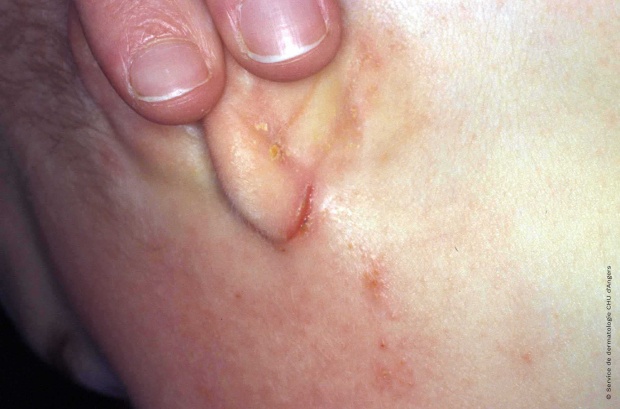

Eczema on the ears

What should you do if you have eczema on your ears? Determine the cause in order to treat it properly: it could be due to an allergic reaction or to atopy.
Eczema may itch, but don’t worry; it will never reach the eardrum.
The symptoms of ear eczema
- Itchy red patches
- Scabs & oozing (acute eczema)
- Pain and itching in the ear
- Feeling of hearing loss due to inflammation of the ear canal
Allergic eczema or atopic eczema?
An allergic reaction: contact eczema
A product or object can sometimes trigger an allergic reaction when it comes into contact with the ear. This often occurs with everyday products, which you may have been using for years without any problems, but which suddenly provoke an allergy.

The following are some well-known triggers for allergic contact eczema:
- Costume jewelry
- Mobile phones
- Hearing aids
- Shampoo, hair dye
- Cosmetics
- Ear drops
The cause may be unclear. In any case, it is best to consult a doctor so they can identify the allergen or allergens responsible (through questions and allergy tests) and advise you on how to avoid future outbreaks.
A sign of atopy: atopic eczema
Atopic eczema is, along with other manifestations such as asthma or rhinitis, a symptom of atopy. People with atopy have, in effect, skin which is abnormally sensitive to the environment, which leads mainly to eczema. Actually, eczema is one of the primary signs of atopy.
Atopic eczema occurs when the skin no longer provides a protective barrier and over-reacts to elements in the environment, resulting in inflammation.
“The area affected reveals a great deal about whether or not it is atopic eczema. Cracking of the fold under the earlobe (the fold under the ear) points to atopy as the cause!”
Treatments for ear eczema
Atopic eczema: Itching can be soothed with a cortisone cream (called a topical corticosteroid). Meanwhile, an emollient can help hydrate the skin in order to repair damage and restore its proper function.
Contact eczema: First, eliminate the cause of the allergy—and any products that may contain the allergen or allergens identified by your doctor—from your daily routine. Your doctor may also prescribe a topical corticosteroid to soothe itching and treat eczema.
Some say that stress, nerves or anxiety can cause eczema. This is false: Eczema is not “all in your head”; it is linked to a physiopathological cause: an allergy or atopy, primarily. At most, stress can sometimes trigger a flare-up or worsen symptoms.
Seborrheic dermatitis or eczema?
The infamous “cradle cap” in infants also affects adults, appearing on the scalp and ears, but these patches, which can also itch, are in part due to a fungus. Seborrheic dermatitis, sometimes referred to as “seborrheic eczema” should, therefore, not be confused with eczema.
Is it a mycosis or ear eczema?
Although many people ask this question, it is somewhat unwarranted. In fact, what is often mistaken for a mycosis is more likely a case of seborrheic dermatitis than eczema. What is commonly called a mycosis is an infection of the outer ear and has no visible signs. It is invisible to the patient and the doctor, who will use an otoscope to confirm the diagnosis. It is, therefore, impossible to confuse mycosis with eczema, which is rarely limited to the ear canal and is thus highly visible.




